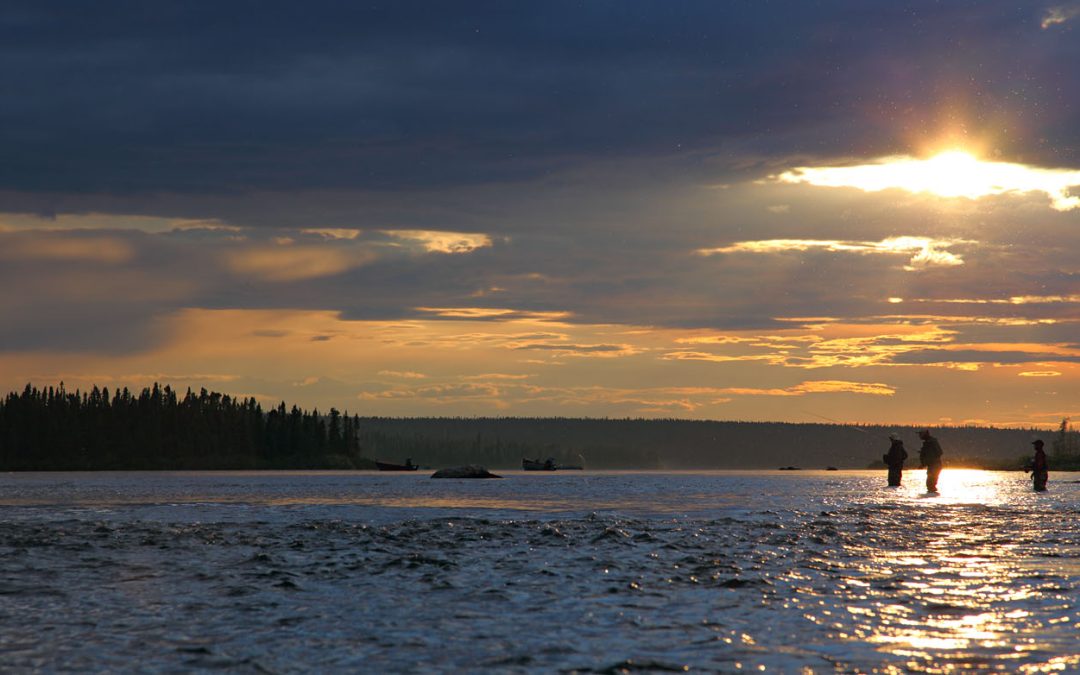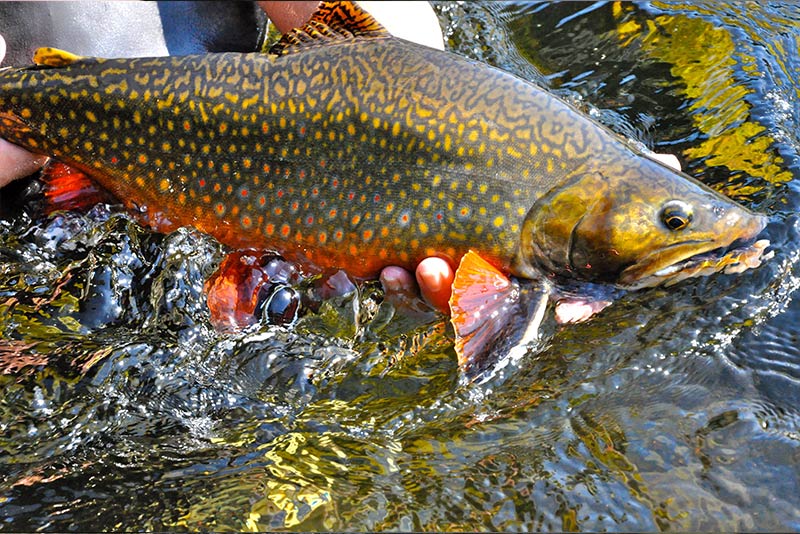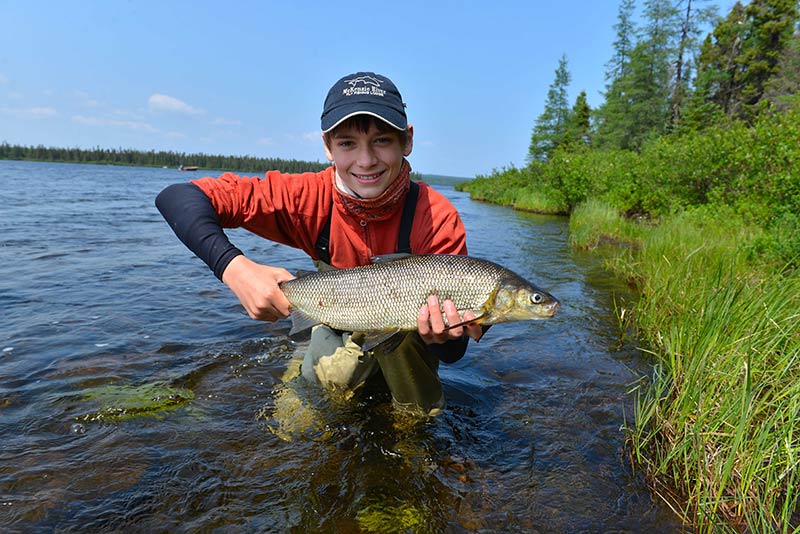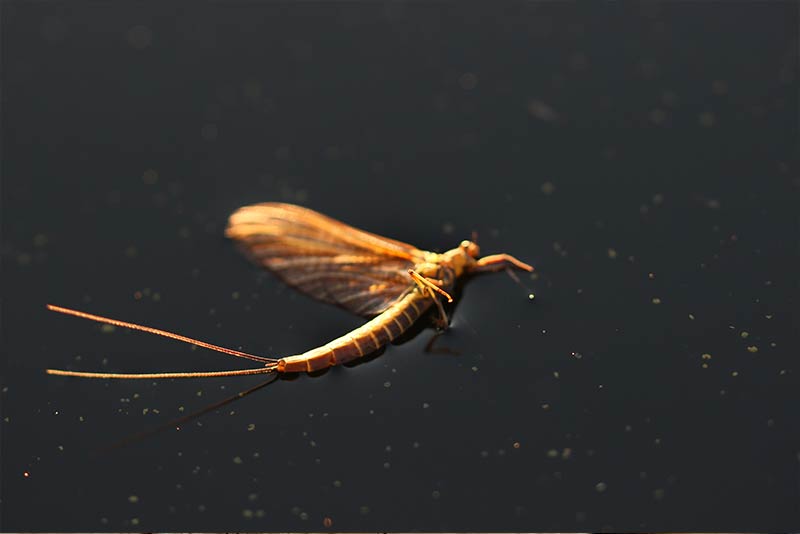Untouched Wilderness…
Labrador is renowned for its pristine and untouched wilderness. The region boasts vast expanses of unspoiled landscapes, including rugged coastlines, serene lakes, and winding rivers. Fishing in Labrador allows you to immerse yourself in this breathtaking natural beauty, providing a sense of tranquillity and escape from the hustle and bustle of modern life.
Labrador is home to some of the most abundant fish populations in North America. Its rivers and lakes teem with a variety of species, including Atlantic salmon, brook trout, lake trout, and Arctic char. Whether you’re a seasoned angler seeking a trophy catch or a beginner looking to reel in your first fish, Labrador offers ample opportunities for success.
Dry fly fishing is certainly one of the most enjoyable and visually exciting techniques for catching brook trout. However, whether it’s the “best” technique depends on various factors such as the specific conditions, the behaviour of the fish, and angler preference. Here are some points to consider regarding dry fly fishing for Brook Trout.
Dry fly fishing is a delicate dance with Nature..
It’s often described as the pinnacle of angling pursuits, captivating the hearts of fly fishermen and women worldwide. It’s a method that requires patience, finesse, and a deep understanding of the natural world. What makes dry fly fishing, so exhilarating is not just the act of catching fish, but the entire experience that surrounds it.
At its essence, dry fly fishing involves presenting a fly that imitates an insect floating on the water’s surface. Unlike other methods where the fly is submerged, dry fly-fishing demands precision and delicacy in casting, as the goal is to land the fly gently on the surface without disturbing it. This mimics the natural behaviour of insects, making it an irresistible temptation for fish. One of the most thrilling aspects of dry fly fishing is the visual element. There’s nothing quite like seeing a trout rise from the depths to sip a fly off the surface with a delicate slurp. It’s a moment of pure magic that connects angler and fish in a timeless dance. Every rise creates a rush of adrenaline, as anticipation builds with each cast.
Furthermore, dry fly fishing requires anglers to be keen observers of nature. They must study the water’s surface for subtle clues – the presence of rising fish, the hatch of insects, and the rhythm of the currents. It’s a game of strategy and intuition, where success often hinges on the angler’s ability to decipher these clues and adapt their approach accordingly.
Patience is another virtue that dry fly fishermen must cultivate. Unlike nymph or streamer fishing, where the action can be fast-paced, dry fly fishing often requires waiting for the perfect moment. It’s about allowing the fish to come to you, rather than aggressively pursuing them. This patience is rewarded with moments of pure bliss when a trout finally takes the fly, sending ripples of excitement through the angler’s veins.
Moreover, dry fly fishing fosters a deep connection with the natural world. It’s not just about catching fish; it’s about immersing oneself in the beauty of rivers, streams, and lakes. Each outing becomes an opportunity to escape the hustle and bustle of everyday life and reconnect with the serenity of nature. Whether it’s the sound of running water, the sight of wildflowers lining the banks, dry fly fishing engages all the senses and nourishes the soul.
In addition to the sensory delights, dry fly fishing also offers a sense of accomplishment. Successfully fooling a wily trout with nothing more than a feather and thread is a challenge that keeps anglers coming back for more, always striving to refine their technique and expand their understanding of the natural world.
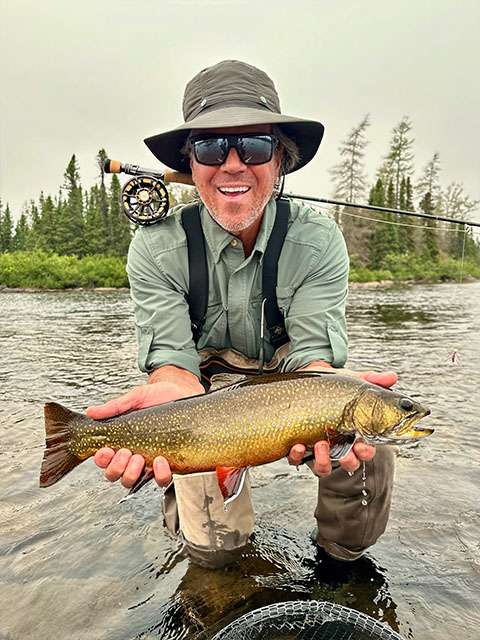
Labrador is renowned as a world-class fishing destination. It offers a unique and unforgettable experience that every angler should consider. Here are several compelling reasons why you should consider venturing to McKenzie River lodge for your next fishing adventure.

